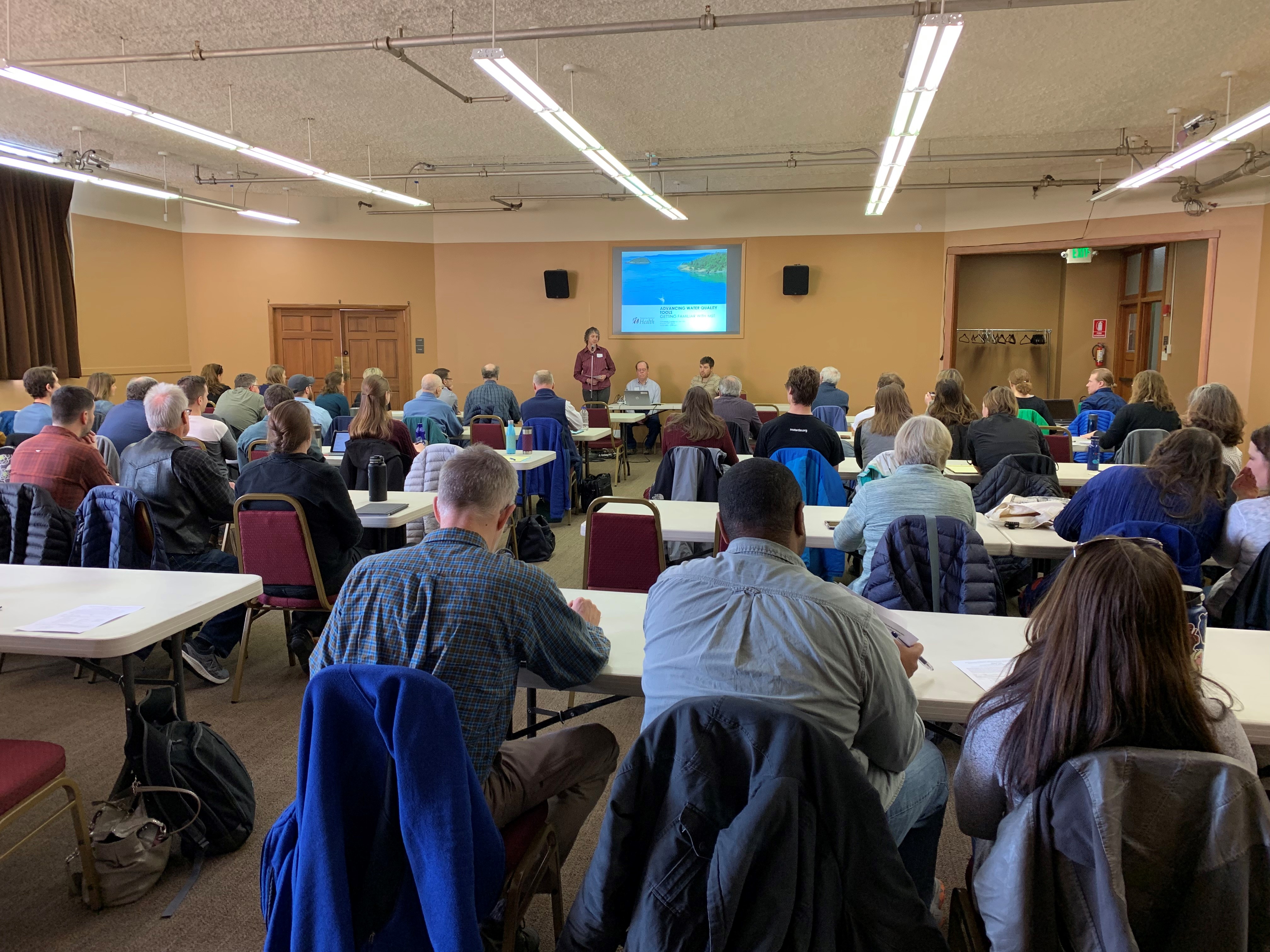Recently a Washington State Sea Grant Fellow, Henry Peterson, ran a workshop in collaboration with the Shellfish Strategic Initiative. The workshop included scientists, researchers, practitioners, and other interested individuals to discuss and learn about efforts throughout Puget Sound using microbial source tracking (MST) to identify sources of fecal coliform pollution. MST is a term for a variety of techniques used to identify the source(s) of fecal coliform. Common tests check for the presence of humans, dogs, ruminants, birds, and more in water samples. The workshop was one of several outputs of Henry’s one year fellowship at the Department of Health where he is working to implement Near Term Action 2016-0220 “State Oversight of Pollution Identification and Correction Programs.”
The presenters discussed their study design,
methodology, challenges, funding, and how they leveraged their results. The
workshop was built off an interest to learn how MST has improved over the last
decade with a focus on current innovative work. The presentations were followed
up by a panel discussion with the presenters, as well as, Eric Thompson with
King County. The following presenters shared with their work with the 70
attendees:
- Newton
Morgan- Working with
MST in Kitsap County with the EPA, Kitsap Public Health - Alex Gipe- Contaminants of Emerging Concern and Chemical Tracers, UW Tacoma
- Rob Zisette– Using MST for Detecting Septic System
Contamination of Lakes and Quantifying Multiple Fecal Sources of Shellfish
Harvesting Closures in Puget Sound, Herrera Environmental Consultants - Matthew
Colston–
Island County MST, Island County
Department of Natural Resources - Meg Harris
& Jenna McLaughlin– Development of a Fecal
Reference Catalog for eDNA, Whatcom Conservation District & Exact
Scientific Services

Want to learn more?
Clink for a copy of the presentations or a copy of the presentation and panel notes.
What’s
next?
The information gathered at the workshop will be used to start an inventory of MST projects completed to establish best practices. If you would like to contribute, please email Henry Peterson at henry.peterson@doh.wa.gov. This project will also include information gathered at the April 10th North Sound PIC Meeting focused on MST in Bellingham (Contact Meg Harris for details at mharris@whatcomcd.org).
Did you know?
The Shellfish Beds Implementation
Strategy highlights the need for solutions to
address barriers such as effective and sustainably funded local nonpoint
pollution programs, sufficient farm waste management and management of onsite
septic systems. This NTA and related
research will help guide the Shellfish Strategic Initiative and partners who
are working towards improving PIC programs around Puget Sound to increase
harvestable shellfish acreage.
